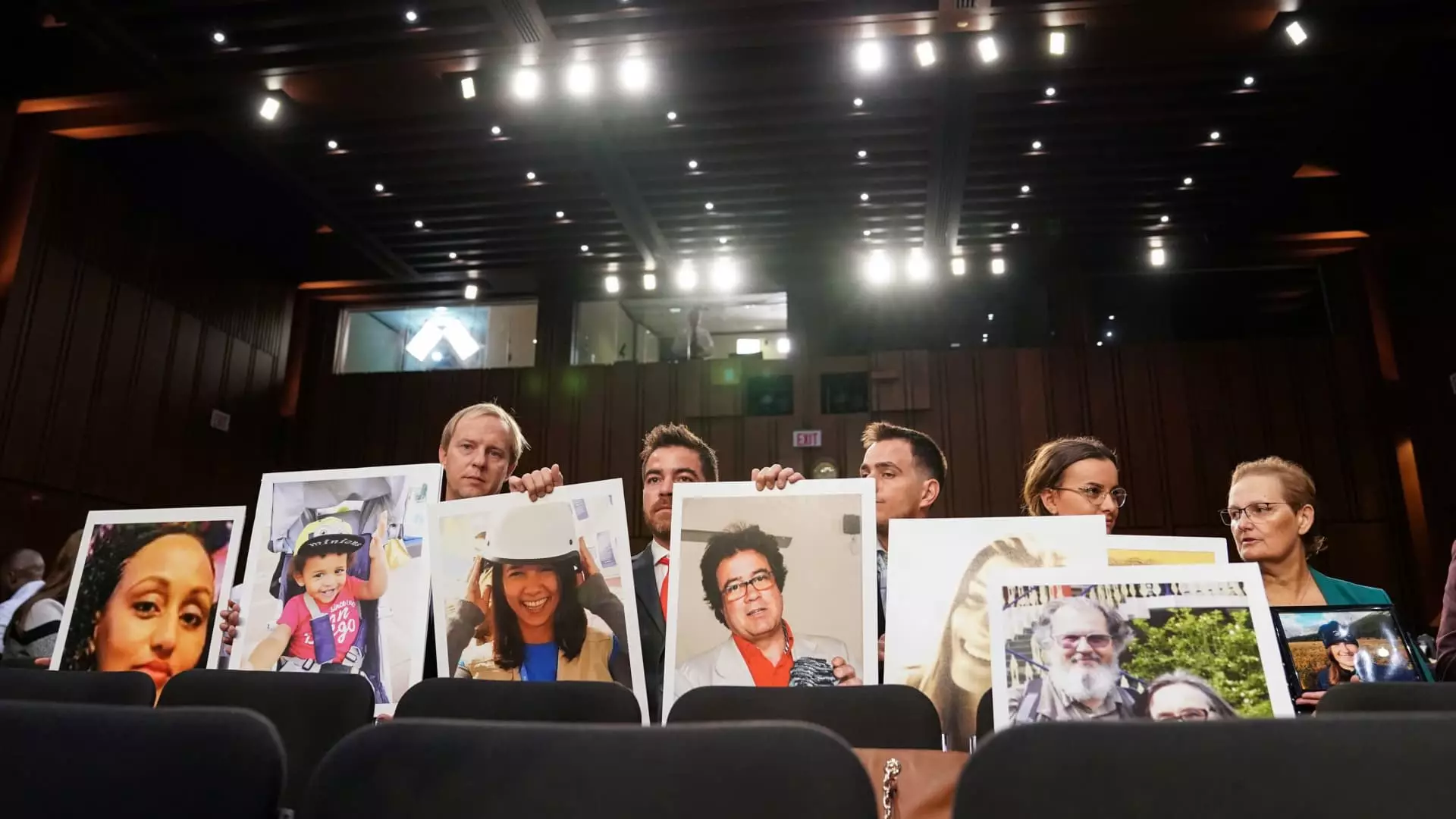The staggering number of 346 lives lost in two tragic 737 Max crashes serves as a sobering reminder of the consequences of corporate negligence. Just recently, the U.S. Justice Department announced a deal allowing Boeing to escape prosecution for its role in those catastrophes. While a non-prosecution agreement may be standard in certain judicial contexts, the underlying moral and ethical implications of this decision demand deep scrutiny. This latest twist in the saga of the nation’s second-largest defense contractor reflects a growing trend of corporations skirting accountability in a system that increasingly prioritizes profit over public safety.
Shirking Accountability: The Price of Corporate Freedom
At the heart of the agreement lies a chilling moral quandary: what does it say about our justice system when a corporation like Boeing can negotiate its way out of legal repercussions? For many families who lost loved ones in the crashes, this outcome epitomizes betrayal. They sought justice—not just for their families, but as a means of instilling accountability that could prevent future disasters. The Justice Department’s justification, suggesting that this settlement serves the “public interest,” seems disingenuous at best. What is so “just” about allowing a major player in the aerospace industry to evade the consequences of its reckless decisions?
The proposed financial terms of the agreement, including a hefty $1.1 billion payout and a new fund for crash victims, appear generous on the surface. However, financial compensation does not bring back the lost lives nor does it hold executives accountable for their actions. The deal has been met with outrage, as family members describe it as a “sweetheart deal” that sets an alarming precedent for corporate behavior. When corporations can simply buy their way out of grave misconduct, we must question the integrity of our regulatory frameworks and whether they truly serve the public.
The Illusions of Safety: Boeing’s Corporate Culture
As investigations have revealed, Boeing’s internal communications were riddled with admissions of deception and the use of manipulative tactics to mislead regulators. While the company has worked diligently to dissociate itself from the stigma of these tragedies, the reality is that the corporate culture at Boeing prioritized profits over ethics. The infamous “jedi-mind tricking” comment by a senior pilot displays a troubling mindset: a focus on getting the product to market rather than ensuring it was safe for the flying public.
With the new non-prosecution deal, there is little incentive for improvement. Boeing’s list of obligations includes compliance and safety measures, yet the same concerns linger. The past has shown that without strict enforcement of these measures, the same misguided priorities could lead to similar catastrophes. The lack of a trial means that no definitive judicial ruling will address Boeing’s actions; instead, it allows the corporation to maintain a facade of innocence as it pursues profit-driven initiatives like its military contracts.
Legal Maneuvering: A Reflection of Broader Systemic Failures
The Justice Department’s positioning throughout this crisis raises crucial questions about what justice should look like for corporate crime. As some family members voiced their outrage, they highlighted a concerning trend in the prosecution—or lack thereof—of influential companies. The non-prosecution agreement not only impacts Boeing but reverberates across industries, sending a message that powerful corporations can navigate through legal challenges more easily than average individuals can.
This situation undoubtedly contributes to the growing disconnect between American citizens and the institutions designed to protect them. The most vulnerable often bear the brunt of corporate negligence, while decision-makers engaged in delaying tactics and self-preservation strategies sidestep accountability. This raises a critical debate: should the pursuit of profits override the urgent need for corporate accountability?
A Call for Reform: Reassessing Corporate Responsibility
The Boeing deal brings to light the urgent need for reforms aimed at corporate accountability. While companies should be afforded legal protections and a fair chance to defend themselves, there must be boundaries in place to prevent egregious misconduct from going unpunished. Our regulatory frameworks need to evolve to reflect the realities of corporate power, while still keeping the priorities of the citizens forefront in their agendas.
Frustrated family members of the victims are left fighting an uphill battle, battling not just the corporation but an entrenched status quo. The Justice Department’s latest actions stand as a stark reminder that without vigorous advocacy for change, corporate malfeasance will likely continue to overshadow justice. The tragic 737 Max crashes are more than mere statistics; they represent the need for a societal reckoning with corporate ethics in America.
As we look forward, the hope lies in collective advocacy for stronger accountability measures. It is time for lawmakers, regulators, and the public to rally together in holding corporations like Boeing accountable, ensuring that safety and transparency take precedence over profits in the corporate landscape.

